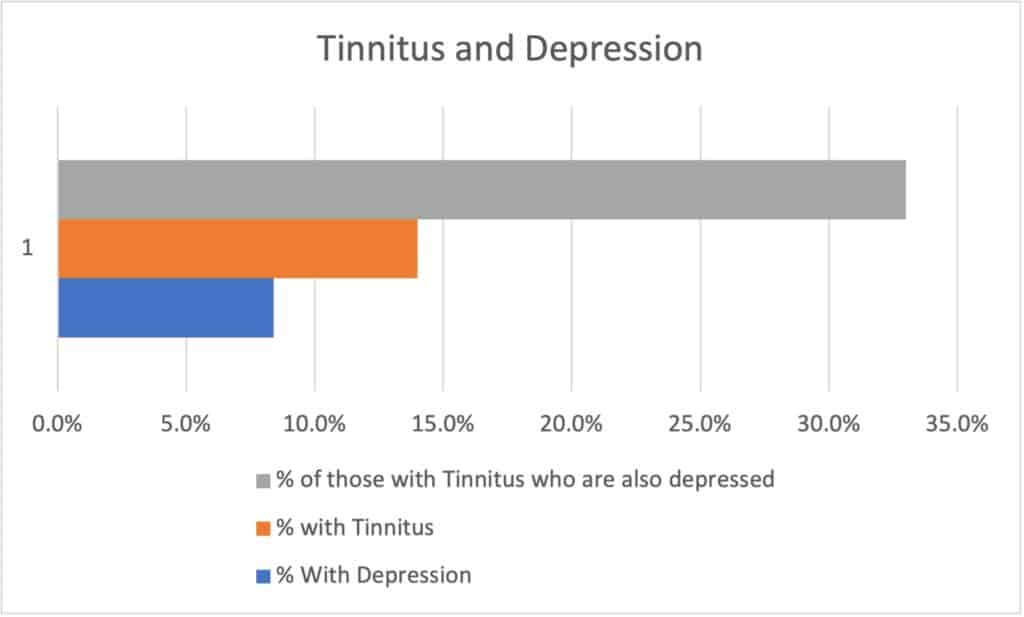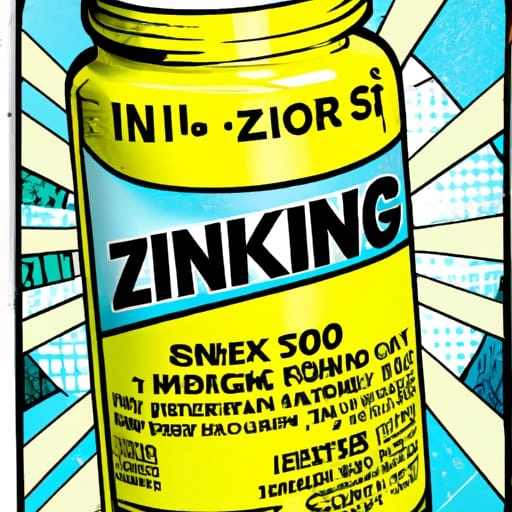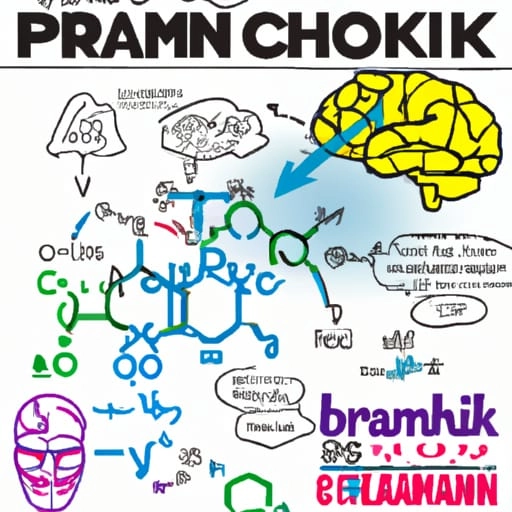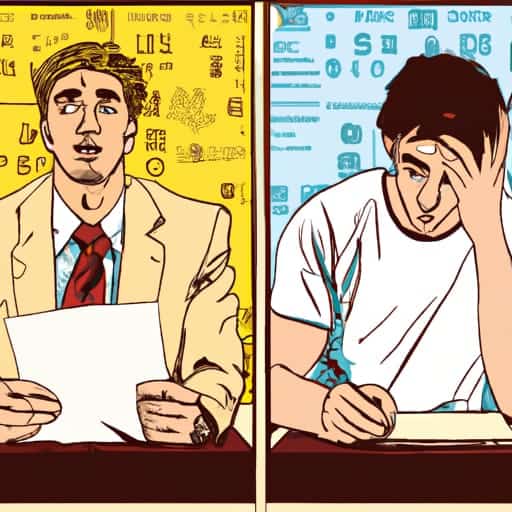Can Tinnitus Cause Depression? A Look At The Relationship

Tinnitus is one of the most common hearing disorders, affecting up to 15% of Americans. It causes ringing and other abnormal sounds in one or both ears, and can be a chronic condition that severely impacts quality of life.
People with tinnitus have panic attacks and depression symptoms, but there may be numerous reasons for this, not necessarily because one causes the other. While most people experience a whistling in the ear from time to time, the persistent sounds, which are the chronic tinnitus symptoms, are there all the time, not just for a couple of hours.
About 14% of the people in the world have had tinnitus, and more than 2% have it severe tinnitus. The prevalence of tinnitus is the same for both men and women, and the rate goes up with age.
But could chronic tinnitus also cause depression? This blog looks at the relationship between tinnitus, depression and anxiety, as well as treatments for tinnitus such as zinc supplements and CBT. Plus, learn how to avoid common triggers like alcohol and caffeine that may make tinnitus worse. Find out if tinnitus can cause depression now!
Introduction: Does Tinnitus Cause Depression and Anxiety?
A systematic review from Brazil in 2013 found a statistically significant correlation between depression and tinnitus.
Logically, when all of the studies are looked at together, there are at least three possible links between depression and tinnitus:
- depression causes tinnitus,
- tinnitus causes depression (and anxiety disorder)
- and tinnitus can show up in people with depression with no causal effect either way.
We do know that people with chronic tinnitus are more likely to have depressive symptoms, but we don’t understand the causes of tinnitus or the comorbidity of tinnitus and depressive disorders. Still less do we understand the common pathophysiology, if there is any.
A further systematic review in 2019 suggested that 33% of people with tinnitus are also depressed. As a comparison the US National Institute of Mental Health found that 8.4% of the general population of the USA is depressed.

A recent study in 2018 from Taiwan that that was published in the Journal of Affective Disorders (LINK) suggested that rather than the common sense belief that chronic tinnitus causes depression and anxiety, that, in some cases the depression can come before the tinnitus symptoms.
This study found that there was a statistically significant link between a prior diagnosis of Major Depressive Disorder and tinnitus that was discoverable up to three years before tinnitus manifests. This may mean that major depressive conditions are a risk factor for tinnitus.
On the publication of their study, the researchers aired the possibility that the two conditions might have a common cause somewhere in the brain. They felt that depression was a precursor to tinnitus. This theory of shared causes has not been proven.
None of this really takes us much further forward. What we want is to feel better. We want our tinnitus to be quieter or even disappear so we can hear the sound of silence or our favorite music or favorite TV show without that constant ringing or whistling. As a less-good, but still okay solution we would settle for finding a way of ignoring or masking the chronic tinnitus sounds.
Sub Types of Tinnitus
Tinnitus is a symptom, not a disease, and it can have many causes, most of which are related to the inner ear It can be caused by the same things that cause hearing loss: noise-induced hearing loss, deafness form aging, traumatic brain injuries or other medical conditions, or medications which are toxic to the ears.
There can be a wide variety of reasons people experience tinnitus. It can be caused by earwax and conductive hearing loss. Tinnitus is usually divided into two main types: non-pulsatile and pulsatile, which are also called subjective and objective tinnitus, respectively.
The most common kind of tinnitus, called non-pulsatile or subjective tinnitus, is what we’re going to talk about in this review.
About 20% of people with tinnitus say that it causes them a lot of stress, and it is these people who are most likely to see a doctor. Stress from tinnitus has been linked to a number of mental disorders, such as irritation, trouble sleeping, anxiety, depression, and thoughts and in rare cases even attempts of suicide.
The drummer of the band Inspiral Carpets killed himself due to severe depression linked to unbearable tinnitus. See this article.
Objective Tinnitus
Objective tinnitus has a generally identifiable cause and treatment options are much better. Often it is rhythmic and there is a ‘whump’ or ‘thump’ sound which suggests you are hearing the blood flow in your carotid arteries. This can be helped.
Subjective Tinnitus
Subjective tinnitus is poorly understood. It is also is much more common and can be caused by almost any problem with the ears. If is often but not always associated with hearing loss.
Subjective tinnitus, which is more common and heard only by the person experiencing it, is more associated with depression. Objective tinnitus, on the other hand, can sometimes be heard by doctors listening with stethoscopes or other specialist equipment. Rarely, a general member of the public may also be able to hear your objective tinnitus.
It is certainly possible to have normal hearing and tinnitus. When I had my hearing tested at the department of otolaryngology, audiologist said my hearing was in good condition for my age and that I had no hearing impairment. My own theory is that my tinnitus was caused by firing guns without ear protection in my 30s. I was also a drummer in a punk band in my 20s, but tinnitus didn’t emerge for ten years or so after that though I’ve had tinnitus for a long period of time now.

Scientific Studies for Tinnitus
There have been numerous studies published looking into tinnitus, particularly subjective tinnitus which is the real mystery. One good place to go is the International Tinnitus Journal.
They are often interesting, but as I’ve rooted through them, I’m looking for clues how I can make it better, and I haven’t found any.
Does Depression Cause Tinnitus?
Depression and tinnitus are two conditions that are often linked. Tinnitus is a condition in which ringing or buzzing in the ears can be caused by depression. Studies have found that tinnitus is more common in patients with major depressive disorder, suggesting (but not proving) that one condition may cause the other. Tinnitus can be the cause of major psychiatric discomfort.
Researchers believe that there are certain brain pathways that are involved in both conditions – leading to potential overlap in symptoms. Apart from research showing that both are rooted in the limbic systems of the brain, and possibly the amygdala, there is no clear evidence of how one might cause the other.
In the end we probably have a chicken and egg situation here.
Tinnitus Treatments
Depression and tinnitus can be a complicated relationship. Treatment for tinnitus depends on the base cause, but may include medication, therapy, lifestyle changes, and hearing aids. It’s important to take steps to manage your mental health if you’re experiencing symptoms of depression that could be contributing to the condition. Stress reduction techniques such as yoga or meditation can also help reduce tinnitus-related symptoms like ringing in the ears and headaches. If you’re having trouble dealing with tinnitus, please talk to your doctor or therapist. They can help you find the right treatment and manage your symptoms.
Silence for tinnitus
We all know that if we’ve been to a loud music concert or have been in the presence of loud noises from machinery or guns we get a ringing in the ears which wears off. However, sometimes one incident of noise damage can be the cause of chronic tinnitus. I knew a man who was in the Navy who was bombed and in that instant he got tinnitus for the rest of his life.
One theory is that if noise makes tinnitus worse, then silence might make it better.
I know my tinnitus gets worse if I have a day’s podcasting and have my earphones on. I use over ear earphones which seem less bad than earbuds or airpods. I have tried silence therapy and sleeping with earplugs, but I haven’t noticed any real benefit.
I find going in a shower helps and that brown noise seems to give me respite. I also wonder whether the damp of the shower helps as my tinnitus definitely seems worse when I have mucus in my sinus area.
Hearing Aids
Some people say that the sound changes that a hearing aid creates can help their tinnitus. Others say it makes it worse. I haven’t tried these.
Medication For Tinnitus
The two most popular medications for tinnitus are alprazolam (Xanax) which was tried in a 1993 study and found some moderate relief in the treatment group but not the control group. I think the problems that would be caused by regularly taking alprazolam, such as addiction, tolerance, increased risk of dementia, cognitive decline, falls, accidents while using machinery outweigh the benefits.
The second most popular medications are the old tricyclic antidepressants such as amitryptiline. They may provide some relief but they are highly dangerous in overdose and in some causes can be a cause of tinnitus.
The bottom line is that no medication approach has proved very effective in reducing the symptoms of tinnitus.

Zinc for tinnitus
Tinnitus is a disorder that causes ringing, buzzing, or hissing in the ears. It can be very bothersome and difficult to manage.
Research shows that zinc may be helpful in treating tinnitus. This mineral helps with brain and nerve functioning which can be disrupted by depression. Since zinc is an important co-factor in many metabolic processes, it also helps reduce inflammation associated with depression and tinnitus over time.
Adding 25 milligrams of zinc every day to your diet may improve your overall health as well as your tinnitus caused by depression over time.
I take a zinc supplement every night, and it doesn’t seem to make any difference to the perception of sound. I do think it relaxes me though as I take it with magnesium and Vitamin B6 which make me sleep well.
Though zinc doesn’t seem to reduce the volume of the tinnitus it might help you relax so you are not so anxious and depressed about the tinnitus. I certainly don’t feel depressed and I’m rarely anxious though when I am, it is sometimes due me getting frustrated that I can’t reduce this noise. Though I must say sometimes the noise gets less on its own, which is a welcome relief. That’s a lesson to notice the positive aspects of your life.
Acupunture for tinnitus
Acupuncture is an ancient Chinese practice that has been shown to be effective in treating tinnitus. It helps improve energy flow and restore balance in the body’s systems, which can help reduce tinnitus symptoms. Research has also shown that acupuncture can be an effective treatment for stress and depression, both of which are known to lead to tinnitus. Regular acupuncture treatments may also help with other symptoms associated with tinnitus such as anxiety, insomnia, fatigue, and irritability.
I had acupuncture of tinnitus. It didn’t help. I’m not against acupuncture as I believe it cured my palpitations after my dad died, but for tinnitus for me, it didn’t do anything.
After saying that, I would try everything. We are all different and there are a large number of reasons why we have this. It might work for you.

Transcranial Magnetic Stimulation for Tinnitus
There is no cure for tinnitus yet, but there are many treatments that can help lessen the symptoms. One of these treatments is transcranial magnetic stimulation (TMS).
TMS involves the use of magnetic pulses to target parts of the brain that affect how we perceive sound. This can be very helpful in reducing the severity and impact of tinnitus. In addition, TMS has been found to be very effective in improving quality of life by reducing stress levels and enhancing relaxation techniques.
TMS is next on my list when I can find a local therapist.
Craniosacral Therapy for Tinnitus
Craniosacral therapy is a gentle hands-on technique that has been shown to be effective in treating tinnitus. It involves the manipulation of head and neck muscles to help relieve tension and stress in the body. This can help reduce anxiety, which is often a common co-occurring issue with tinnitus sufferers who also have depression. Additionally, this type of treatment may improve posture, alignment, and circulation throughout the body which could lead to an improvement in symptoms associated with tinnitus.
I went to an osteopath for this. I found the osteopath helped with my stiff neck (I wondered whether that was the cause of it) and I felt so relaxed, but the tinnitus volume did not change.
Alcohol and caffeine with tinnitus
Healthcare professionals always tell you to stop smoking, drinking and avoid caffeine. There are good reasons why they say these things. I’ve never smoked so that didn’t cause my tinnitus. I don’t know if it would make it worse. A study about tinnitus and coffee found no effect either way so caffeine does not seem to be an apparent cause of tinnitus.
The same is true for alcohol. While drinking lots of alcohol is not good for you, there is no discernible reason why you should avoid alcohol to reduce tinnitus except that alcohol will make you anxious on withdrawal and then depressed so you might want to reduce alcohol to help with your mental health in general.
Subjectively, I think my tinnitus may be worse after drinking and I notice depression feelings after alcohol, but I can’t prove this.
Cognitive-Behavioral Therapy (CBT) for Tinnitus
CBT is a common treatment for tinnitus. It helps in identifying and changing the negative thoughts associated with tinnitus. This therapy also focuses on helping tinnitus patients develop coping skills to manage their symptoms better.
Research has shown that CBT is effective in reducing the emotional impact of tinnitus, thereby improving the patient’s quality of life significantly. As such, it should be considered as one of the first steps when tackling this debilitating condition.
This is a secondary treament. No one is suggesting that CBT will reduce the volume of tinnitus, but what they are suggesting that having CBT may help underlying anxiety and depression and thus reduce the impact of tinnitus on you.
It’s definitely worth trying.

Conclusion: Can Tinnitus Cause Depression?
As we know, depression and tinnitus are two health conditions that can cause a lot of emotional and physical suffering. Ideally it would be important to understand the cause and effect relationship between the two conditions in order to help those suffering from both get the help they need as soon as possible. But researchers cannot say what their relationship is, and cannot offer much effective help for tinnitus, though they can help depression.
In summary, though we do not know the exact cause of tinnitus, we do know there is a significant comorbidity of depression.
Tinnitus is a dreadful condition and the sufferers get very little rest from it. It can mean that people avoid social activities and social situations due to either fearing their the worsening of the tinnitus from the noise. This may lead to social isolation and worsen existing clinical depression.
When they are tired and stressed the tinnitus is more burdensome and it does seem to be made worse by certain factors, such as loud noise. Tinnitus sufferers want the noise to go away. Doctors have no cure to offer so they aim for the patient to have a reduction in tinnitus perception and be less bothered by the tinnitus sound. Sufferers from tinnitus want the noise level to reduce.
Tinnitus does cause depression in people. Remember around 9% of the population are depressed, but 33% of people with tinnitus are depressed. Again, there’s a chicken and egg scenario at work here, but common sense suggests, and these figures support, the underlying concept that tinnitus causes depression in a significant number of people.
Personally, I would try anything that might help from the list of treatments above in the hope that they could reduce the volume of the tinnitus noise which will lead to a reduction in your depression and anxiety.
I is also worth trying it the other way and seeking treatment for depression and anxiety because we know that if your mental health can be improved you might have an easier time with the tinnitus.
In the first instance you should seek medical professionals. Your GP might refer you to an audiologist who can give you a hearing test and that might be a start. Like me, you might end up doing most of the research work yourself to find out what works for you. That’s actually good news. I’m all in favour of taking responsibility for your own health rather than leaving it all to healthcare professionals.
Take heart, enjoy the positive facets of your life. Know that tinnitus goes up and down in volume even though we don’t understand exactly why. Avoid the things that make it worse and do more of the stuff that helps. There are a variety of other noises that help me such as the ‘brown nose’ of waves, wind, waterfalls, thrashing trees. My mind is taken off my tinnitus by good quality social time with friends and family or listening to my favorite tunes (I can’t give up music) or watching my favorite TV program.
Good luck, and if I find something that works, I will let you know. For me so far, it’s the masking by other noises, maybe zinc, maybe avoiding alcohol and certainly making a point of noticing the blessings in my life.
One last tip…
Don’t buy that ‘Guaranteed Tinnitus Cure’ ebook, or app, or video, or course, or tincture that someone on the internet is advertising. It won’t work.






